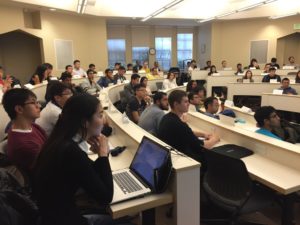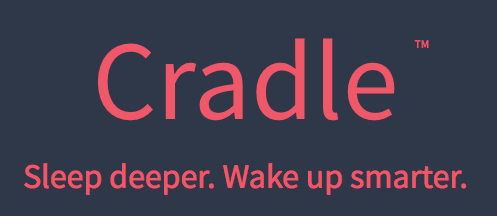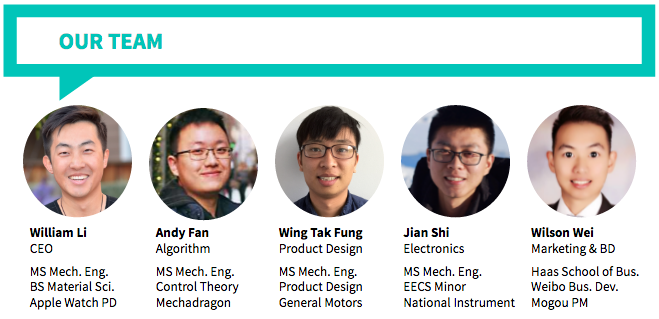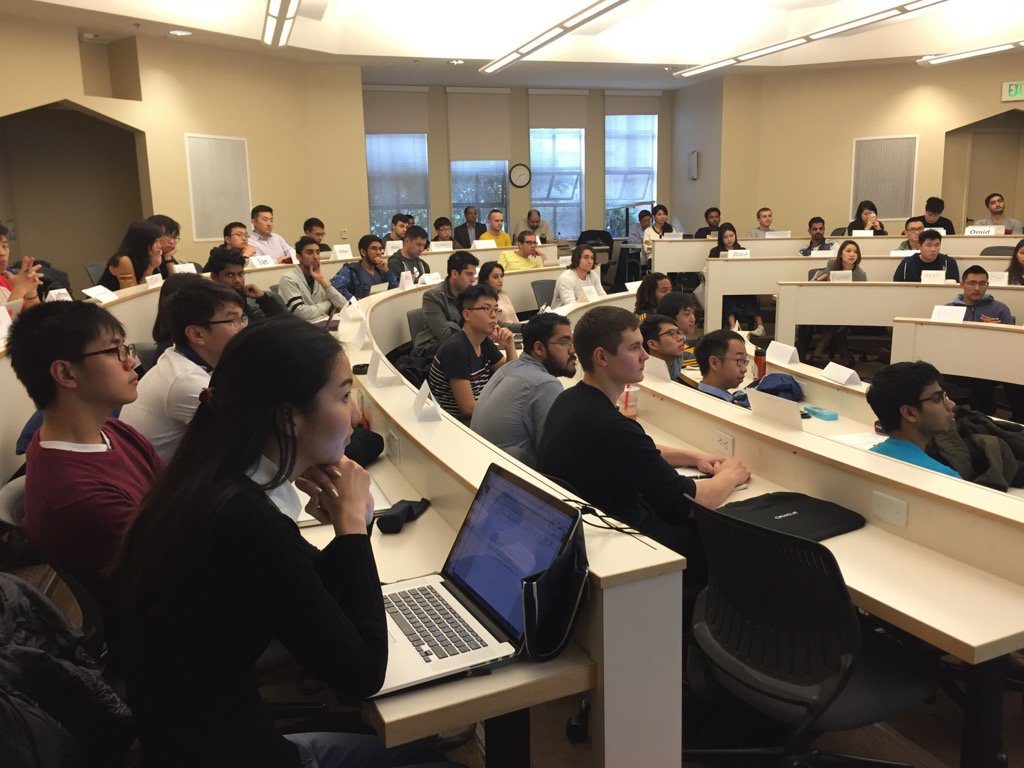The SCET offers students a series of courses that are meant to bridge the gap between academia and the professional world, and give students a first-hand experience of what it is like to build a product and a company from the ground up. This entrepreneurial thinking, and freedom to explore your strengths and talents is most visible in one of our most popular classes, IEOR 191 – Technology Entrepreneurship.
For many years now, this class has become a favorite for students from all forms of majors. The course is taught by Professor Naeem Zafar. Professor Zafar started his own business at the age of 26 and subsequently went on to start, or work at, six startups. His first job out of Brown University with a degree in electrical engineering was to design chips and electronic systems. Twenty years, two kids, one IPO and three CEO stints later, he founded Startup-Advisor, a company focused on educating and advising entrepreneurs on all aspects of starting and running a business. Having taught New Venture Finance and the Entrepreneurship course at the Haas School of Business since 2005, Professor Zafar now splits his time between IEOR 191 at Berkeley and his newest startup www.telesense.com in the industrial IOT space that he founded in 2013. He also holds a position as the Professor-of the Practice at Brown University.
This article aims to highlight some of the companies that have emerged from IEOR 191 this semester. Students are assigned in groups, and spend a significant amount of time across the semester meeting with their assigned industry mentors, conducting surveys, market tests, and ‘chiseling’ their ideas until they reach their MVP – most viable product. At the end of the semester, students are made to pitch their ideas to VCs from well-known incubators and VC firms in the Bay Area, and the winning team is given seed funding to take their idea to the next level. One of the startups from last semester, NomNom, has been catering its product to students at Berkeley this entire semester! It has also pitched to numerous VCs and has been showcased at many startup conferences this year.
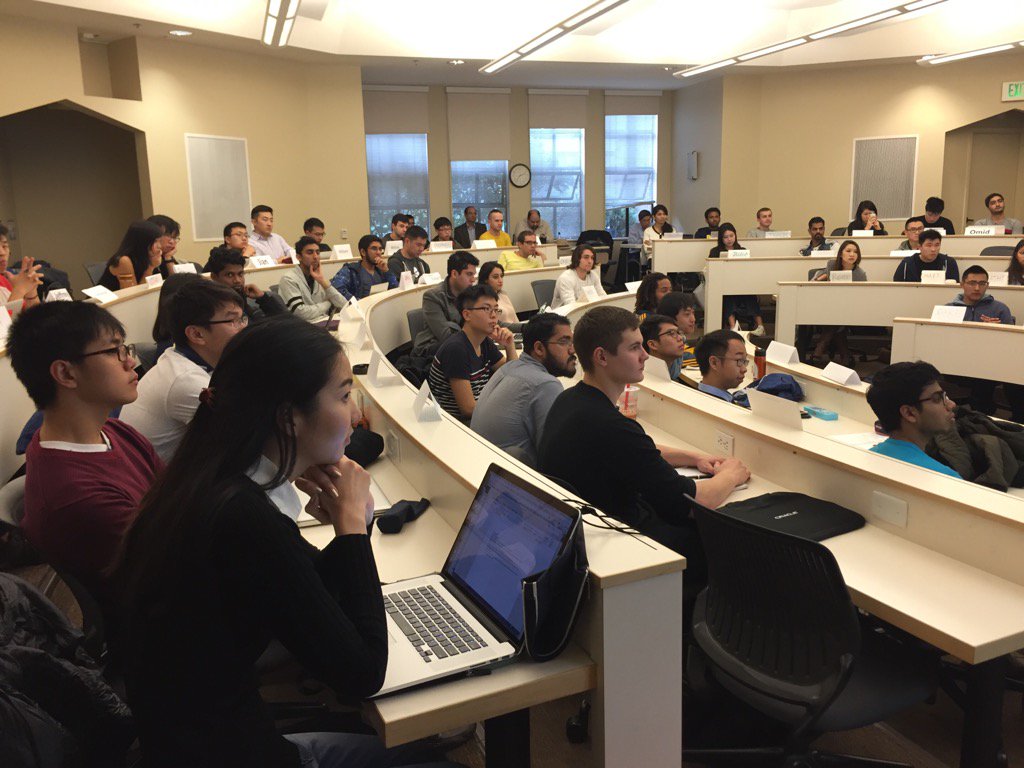
The first startup that we would like to feature is Cradle, formed by a few students from various graduate schools on campus. Cradle is a health tech company that brings the world a refreshingly better night sleep. Proven in neuroscience research settings at UC Berkeley and Germany, their proprietary technology lies within a smart eye mask with embedded EEG sensors and speakers that stimulate more powerful slow oscillation brain waves to improve deep stage sleep quality and memory consolidation by as much as 40%. Moreover, their smart eye mask will also improve your overall sleep experience by eliminating noise and light disturbances, simulating a sunrise wake-up experience, and providing personalized sleep advices through a smartphone app throughout the day.
William Li, CEO of Cradle and currently pursuing his MS in Mechanical Engineering thoroughly enjoyed his experience in the class and was full of praise for the faculty that helped him and his team learn about how to take their product to the next level – “We had a great experience during this class learning from both our professor, Naeem Zafar, and our mentor, Faraz Hoodbhoy. Aside from the extremely relevant materials presented in class, the process we went through as a team to try to establish an actual startup taught us even more. The most memorable learning is, however, a change in the mindset to think like an entrepreneur in not only business setting, but also everything in life!”
William however isn’t the only one who was moved by this class. Tiffany Tsai, an undergraduate student at UC Berkeley also loved the opportunities she got through IEOR 191 – “think the class was extremely helpful and I’ve learned so much about entrepreneurship this semester from this class alone. I think this class is really unique and it’s become one of my favorite classes that I’ve taken at Berkeley because it really gives you a sense of what it’s like to be an entrepreneur. It gives students the opportunity for real-world learning and application, and resources to committed mentors who help you refine the startup.”
Tiffany’s team, worked on a startup called ArtBook, which is trying to revolutionize the way art is rented. ArtBook’s platform allows artists, individual collectors, business, commercial properties and hotels to list out art pieces that can then be used by other businesses and collectors for the long term.
The third startup that the SCET would like to showcase is Aqualize. Aqualize is a set-it-and-forget-it lead monitoring system that gives you reassurance about the safety of your water. It provides a faucet attachment that monitors lead contamination throughout the day and notifies you on your smartphone and on the faucet itself. Moreover, it also provides a proactive alert system that notifies someone if they are in an area of contaminated water. Given large water contamination issues that have become a talking point in USA in 2016, not just in Michigan but in other states too, Aqualize addresses a growing market and shows massive potential for solving a huge headache for the utilities sector. Aqualize’s pitch deck & final presentation for the class can be viewed here.
Aqualize was founded by a friend and volunteer for the center, Chase Smith – an undergraduate Computer Science student. Chase highly recommends the class to everyone – “I recommend Tech Entrepreneurship (IEOR 191) for anyone who wants to learn how to bring an idea to reality. The class itself was difficult, but it opened up an entirely new type of thinking in marketing and product development for starting a business.”
The class is truly representative of the purpose of the SCET – it pushes forward the practice of ‘technology centric’ entrepreneurship and innovation, and utilizes an extensive network of mentors and professionals in the Bay Area to help students acclimatize to the demands of the Silicon Valley. IEOR 191 is offered every semester, and the class meets once a week for 3 hours. We’d like to thank Aqualize, Cradle and ArtBook for sharing their expriences for our audience – the SCET wishes them the best in moving on from the ideation phase and bringing their ideas to the market.
The SCET offers students a series of courses that are meant to bridge the gap between academia and the professional world, and give students a first-hand experience of what it is like to build a product and a company from the ground up. This entrepreneurial thinking, and freedom to explore your strengths and talents is most visible in one of our most popular classes, IEOR 191 – Technology Entrepreneurship.
For many years now, this class has become a favorite for students from all forms of majors. The course is taught by Professor Naeem Zafar. Professor Zafar started his own business at the age of 26 and subsequently went on to start, or work at, six startups. His first job out of Brown University with a degree in electrical engineering was to design chips and electronic systems. Twenty years, two kids, one IPO and three CEO stints later, he founded Startup-Advisor, a company focused on educating and advising entrepreneurs on all aspects of starting and running a business. Having taught New Venture Finance and the Entrepreneurship course at the Haas School of Business since 2005, Professor Zafar now splits his time between IEOR 191 at Berkeley and his newest startup www.telesense.com in the industrial IOT space that he founded in 2013. He also holds a position as the Professor-of the Practice at Brown University.
This article aims to highlight some of the companies that have emerged from IEOR 191 this semester. Students are assigned in groups, and spend a significant amount of time across the semester meeting with their assigned industry mentors, conducting surveys, market tests, and ‘chiseling’ their ideas until they reach their MVP – most viable product. At the end of the semester, students are made to pitch their ideas to VCs from well-known incubators and VC firms in the Bay Area, and the winning team is given seed funding to take their idea to the next level. One of the startups from last semester, NomNom, has been catering its product to students at Berkeley this entire semester! It has also pitched to numerous VCs and has been showcased at many startup conferences this year.

The first startup that we would like to feature is Cradle, formed by a few students from various graduate schools on campus. Cradle is a health tech company that brings the world a refreshingly better night sleep. Proven in neuroscience research settings at UC Berkeley and Germany, their proprietary technology lies within a smart eye mask with embedded EEG sensors and speakers that stimulate more powerful slow oscillation brain waves to improve deep stage sleep quality and memory consolidation by as much as 40%. Moreover, their smart eye mask will also improve your overall sleep experience by eliminating noise and light disturbances, simulating a sunrise wake-up experience, and providing personalized sleep advices through a smartphone app throughout the day.
William Li, CEO of Cradle and currently pursuing his MS in Mechanical Engineering thoroughly enjoyed his experience in the class and was full of praise for the faculty that helped him and his team learn about how to take their product to the next level – “We had a great experience during this class learning from both our professor, Naeem Zafar, and our mentor, Faraz Hoodbhoy. Aside from the extremely relevant materials presented in class, the process we went through as a team to try to establish an actual startup taught us even more. The most memorable learning is, however, a change in the mindset to think like an entrepreneur in not only business setting, but also everything in life!”
William however isn’t the only one who was moved by this class. Tiffany Tsai, an undergraduate student at UC Berkeley also loved the opportunities she got through IEOR 191 – “think the class was extremely helpful and I’ve learned so much about entrepreneurship this semester from this class alone. I think this class is really unique and it’s become one of my favorite classes that I’ve taken at Berkeley because it really gives you a sense of what it’s like to be an entrepreneur. It gives students the opportunity for real-world learning and application, and resources to committed mentors who help you refine the startup.”
Tiffany’s team, worked on a startup called ArtBook, which is trying to revolutionize the way art is rented. ArtBook’s platform allows artists, individual collectors, business, commercial properties and hotels to list out art pieces that can then be used by other businesses and collectors for the long term.
The third startup that the SCET would like to showcase is Aqualize. Aqualize is a set-it-and-forget-it lead monitoring system that gives you reassurance about the safety of your water. It provides a faucet attachment that monitors lead contamination throughout the day and notifies you on your smartphone and on the faucet itself. Moreover, it also provides a proactive alert system that notifies someone if they are in an area of contaminated water. Given large water contamination issues that have become a talking point in USA in 2016, not just in Michigan but in other states too, Aqualize addresses a growing market and shows massive potential for solving a huge headache for the utilities sector. Aqualize’s pitch deck & final presentation for the class can be viewed here.
Aqualize was founded by a friend and volunteer for the center, Chase Smith – an undergraduate Computer Science student. Chase highly recommends the class to everyone – “I recommend Tech Entrepreneurship (IEOR 191) for anyone who wants to learn how to bring an idea to reality. The class itself was difficult, but it opened up an entirely new type of thinking in marketing and product development for starting a business.”
The class is truly representative of the purpose of the SCET – it pushes forward the practice of ‘technology centric’ entrepreneurship and innovation, and utilizes an extensive network of mentors and professionals in the Bay Area to help students acclimatize to the demands of the Silicon Valley. IEOR 191 is offered every semester, and the class meets once a week for 3 hours. We’d like to thank Aqualize, Cradle and ArtBook for sharing their expriences for our audience – the SCET wishes them the best in moving on from the ideation phase and bringing their ideas to the market.

